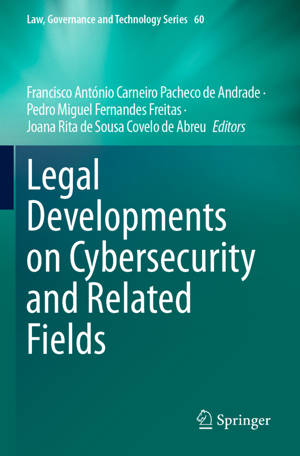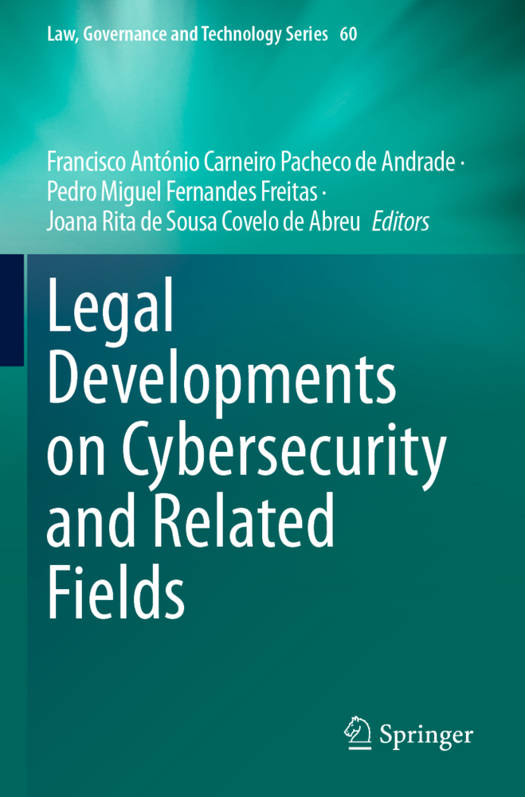
- Afhalen na 1 uur in een winkel met voorraad
- Gratis thuislevering in België vanaf € 30
- Ruim aanbod met 7 miljoen producten
- Afhalen na 1 uur in een winkel met voorraad
- Gratis thuislevering in België vanaf € 30
- Ruim aanbod met 7 miljoen producten
Zoeken
Legal Developments on Cybersecurity and Related Fields
€ 168,95
+ 337 punten
Omschrijving
This book presents a fresh approach to cybersecurity issues, seeking not only to analyze the legal landscape of the European Union and its Member States, but to do so in an interdisciplinary manner, involving scholars from diverse backgrounds - ranging from legal experts to ICT and engineering professionals.
Cybersecurity requirements must be understood in a broader context, encompassing not just conventional aspects, but also emerging topics. This can only be achieved through an interdisciplinary approach. Indeed, cybersecurity should be consistently considered in relation to cybercrime and/or cyber defense, while examining it through the lens of specific domains that are intertwined with various legal fields. Moreover, it is crucial to uphold ethical standards and safeguard fundamental rights, particularly regarding personal data protection.
By adopting this comprehensive perspective, the significance of cybersecurity in the exercise of public authority becomes apparent. It also plays an essential role in upholding the fundamental values of both individual Member States and the EU as a whole, such as the rule of law. Moreover, it fosters trust, transparency, and effectiveness in market relations and public administration interactions.
In turn, the book draws on the expertise of its authors to provide insights into ICT components and technologies. Understanding these elements holistically is essential to viewing every "cyber" phenomenon from a legal standpoint. In addition to the holistic and interdisciplinary approach it presents, the book offers a captivating exploration of cybersecurity and an engaging read for anyone interested in the field.
Cybersecurity requirements must be understood in a broader context, encompassing not just conventional aspects, but also emerging topics. This can only be achieved through an interdisciplinary approach. Indeed, cybersecurity should be consistently considered in relation to cybercrime and/or cyber defense, while examining it through the lens of specific domains that are intertwined with various legal fields. Moreover, it is crucial to uphold ethical standards and safeguard fundamental rights, particularly regarding personal data protection.
By adopting this comprehensive perspective, the significance of cybersecurity in the exercise of public authority becomes apparent. It also plays an essential role in upholding the fundamental values of both individual Member States and the EU as a whole, such as the rule of law. Moreover, it fosters trust, transparency, and effectiveness in market relations and public administration interactions.
In turn, the book draws on the expertise of its authors to provide insights into ICT components and technologies. Understanding these elements holistically is essential to viewing every "cyber" phenomenon from a legal standpoint. In addition to the holistic and interdisciplinary approach it presents, the book offers a captivating exploration of cybersecurity and an engaging read for anyone interested in the field.
Specificaties
Betrokkenen
- Uitgeverij:
Inhoud
- Aantal bladzijden:
- 344
- Taal:
- Engels
- Reeks:
- Reeksnummer:
- nr. 60
Eigenschappen
- Productcode (EAN):
- 9783031418228
- Verschijningsdatum:
- 7/02/2025
- Uitvoering:
- Paperback
- Formaat:
- Trade paperback (VS)
- Afmetingen:
- 155 mm x 235 mm
- Gewicht:
- 534 g

Alleen bij Standaard Boekhandel
+ 337 punten op je klantenkaart van Standaard Boekhandel
Beoordelingen
We publiceren alleen reviews die voldoen aan de voorwaarden voor reviews. Bekijk onze voorwaarden voor reviews.










